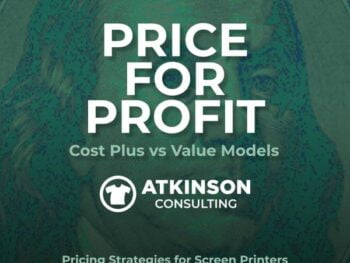You don’t have to go it alone. Your professional journey on the road to success can have a few partners to help guide you and make the trip easier, less bumpy, fewer detours, and even more stimulating. Whether you find yourself using a lone mentor or your own personal “Board of Directors”, the important thing is to find the brain trust that will give you the push you need.
Over the years I’ve mentored a few people, but and I also have my own inner circle that helps point me in the right direction as well. Here in Milwaukee I currently belong to a group with the local chamber of commerce called the “Council of Small Business Executives”, which also functions as a professional board of directors for me with my position as COO. This group is diverse in talent, skill, and profession. I also have a cadre of great folks that I have been leaning on seemingly forever as well. The value in these relationships is mining the breadth of knowledge that others have and can willingly share. If you are looking to build your own personal board of directors what should you do, or where should you start? Let’s explore:
Set Goals & Priorities. Before you speak to anyone, think about your needs and priorities. What’s the end game? Do you just need some short term advice on a particular problem, or are you looking for an on-going sounding board that you know will be in your pocket when you have a challenge that needs resolution? Maybe it’s a mixture of both. Get a concrete idea of your needs, and set some goals that you will be working towards. Write them down. You will want to refer to these when you recruit your mentors, but also along the way to make sure your goals are being met.
Find Help. Ideally your board should be composed of people with diverse backgrounds and skill sets. You want people that can bring real-world experience to the table and challenge you when you need it. Successful people have made plenty of mistakes and have grown from them. So when you, metaphorically speaking, start talking about chopping down a tree and all you have is a pocket knife’s worth of experience, they are the ones that can hand you a chainsaw and show you how to fire that mother up and zip through the wood.
What do they look like? Maybe you already know them, maybe you don’t. The people that you want to recruit should know more than you, be more successful than you, be better than you, but more importantly offer different points of view. It’s not going to do you any good to just have your best friends on your board, as they probably will just agree with everything you say. You need to be challenged. You want that different opinion. You need someone to be able to grab your arm, and tell you to not travel down this particular road “and here’s why”. Or suggest a laundry list of action items that you wouldn’t have thought of without some major struggle or effort.
Trust. The relationship that you want to build is going to be constructed from trust. To work effectively, you will need to trust the people on your board with all of the secret facets of your professional life. Thinking about a career change? These are the people that you can get good advice and direction from, without fear of the thought getting back to your current employer. If you don’t feel that you can honestly open up to someone you are considering for your board, then that person shouldn’t be on your short list. You need to feel safe.
How it should work. Ideally you are meeting or talking on the phone with your circle on a regular basis. It doesn’t have to be a scheduled event, but if that helps to keep things aligned then do it that way. You are looking for balance and perspective. Your board should be familiar with your goals and desires and be able to communicate their opinion on what should happen next. If you have several people on your board you could possibly get multiple opinions or options regarding the same situation. This is the good stuff. Filter out what will make you better and move forward.
Look out! There are some things you should always keep in mind. First, everyone may approach a situation differently. You want their perspective and opinion, but that doesn’t mean it’s a prescription or a rule to follow to the letter. Take everything with a grain of salt and absorb their advice. Make it work for you. Secondly, the really great ideas come from open and honest dialog. It’s a back and forth conversation; and everything should lead up to an action plan for you that will propel your goals and agenda. Remember, this is about your growth. If you hold back, leave out details, or aren’t completely truthful with your advisory board, then you probably won’t achieve the desired outcome of the group.
Ask. If you’ve determined who might be on your board, you need to ask them to help you. Ideally this is a face to face meeting, but a phone call can suffice if the person isn’t local. You will need to explain why you think that they could help you, the time commitment involved, and the goal of the mentorship. Hopefully they will want to help you, but don’t be offended if they decline. It’s a big commitment, and some people may not be prepared or feel that it is too much responsibility. If you are joining a pre-existing group like the one I belong to, then make sure your circle has the right people and that you feel comfortable with them. There’s no shame in resigning from the group, and trying out another, or looking into another avenue. This is important, so make sure it’s a good fit.
Rewards. Getting feedback on a particular topic, making an action plan, and then achieving your goal is an awesome feeling. Once you start moving the needle on your growth objectives you will wonder why you didn’t start building your personal board of directors earlier. Also, if you bring your circle a challenging situation and they offer you the critical perspective to help navigate the minefield successfully you’ll see why having your own personal brain trust is so beneficial.
What do they get out of it? Start with a sincere Thank You. This relationship isn’t so much about your circle getting financial rewards for helping you, as it is building a relationship and altruistically helping you. Most of the time, it will be a two-way street and you’ll be able to help them with something as well. If you want to take them to lunch, bake them some cookies, or buy them their favorite bottle of booze…then that’s nice too. Your mom was right; say thank you and show your appreciation.
What if I want to help others? Awesome!! It’s great that you want to take someone under your wing and help guide them to be a success. Giving back to your industry. Showing someone the ropes. Paying it forward. Name your cliché; it’s a good thing to do. Just be open to the idea, and people will find you. It all starts with a conversation.
Are you ready to talk?




